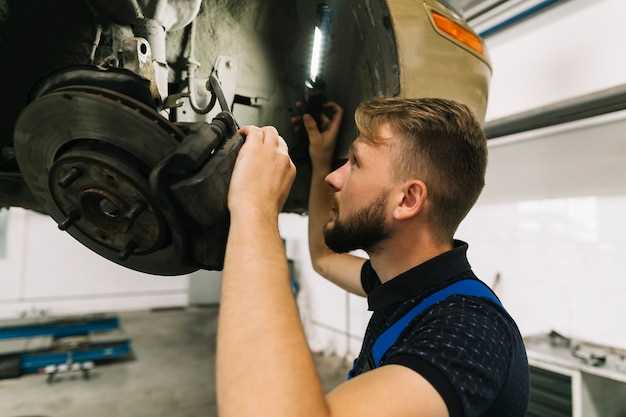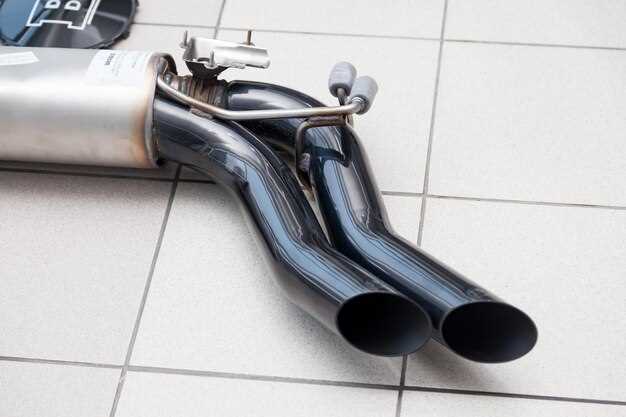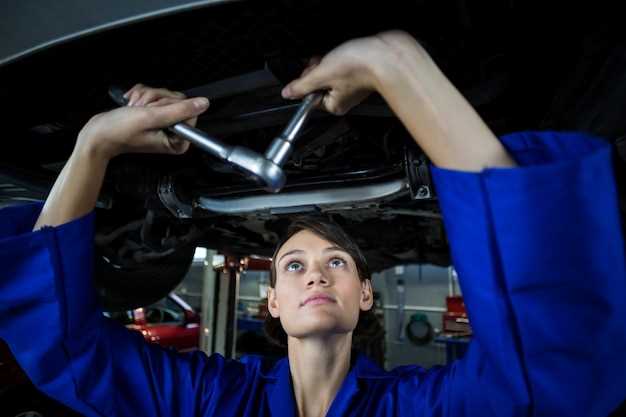
The exhaust system plays a crucial role in a vehicle’s performance and overall efficiency. It is responsible for directing harmful gases away from the engine and reducing noise, making its maintenance essential for longevity and smooth operation. Neglecting this vital component can lead to serious issues, such as decreased fuel efficiency and increased emissions, ultimately resulting in costly repairs. Understanding the importance of regular upkeep is key to ensuring that your exhaust system remains in optimal condition.
To keep your exhaust system functioning effectively, it is important to engage in routine maintenance practices. Regular inspections can help identify potential problems early on, such as rust, leaks, or damage to the exhaust pipes. Most car enthusiasts and mechanics recommend checking for signs of wear and tear periodically to prevent minor issues from escalating into major repairs. By taking proactive measures, you can avoid the hassle and expenses associated with a failing exhaust system.
In addition to inspections, investing in quality components and using the right materials during repairs is essential for maintaining your exhaust system. This includes paying attention to the type of mufflers and catalytic converters used, as they greatly influence performance and compliance with environmental regulations. By following effective maintenance tips and addressing issues when they arise, you can ensure that your exhaust system remains in excellent shape for many miles to come.
Regular Inspection: Spotting Issues Early
Maintaining your exhaust system is crucial for optimal vehicle performance and longevity. Regular inspection allows you to spot issues early on, preventing costly repairs and ensuring safety. Develop a routine schedule to check your exhaust components, including pipes, mufflers, and mounts. Look for signs of rust, corrosion, or cracks that may indicate a failing system.
During inspections, listen for unusual noises like hissing or rattling, which can signify exhaust leaks. Pay attention to any changes in engine performance or fuel efficiency, as these may point to issues within the exhaust system. Additionally, observe exhaust emissions’ color and smell; any unusual characteristics could signal serious problems.
Care for your exhaust system involves keeping it clean and free from debris that can obstruct flow or cause damage. If you notice any issues during your inspections, address them immediately to avoid further complications. Consistent checks can extend the life of your exhaust system and enhance overall vehicle function.
Proper Cleaning: Maintaining Clear Exhaust Flow

Regular maintenance of your exhaust system is essential for optimal vehicle performance and efficiency. Proper cleaning plays a significant role in ensuring that exhaust gases flow freely, preventing buildup that can lead to serious issues.
To maintain a clear exhaust flow, begin by inspecting the exhaust system for any visible signs of rust or corrosion. Use a wire brush to scrub away accumulated dirt and debris, focusing on areas where buildup is most likely to occur, such as joints and hangers.
Next, consider utilizing a specialized exhaust cleaner. These products are designed to break down carbon deposits and soot that can hinder exhaust flow. Follow the manufacturer’s instructions for application, ensuring thorough coverage for effective results.
Additionally, inspect and clean the exhaust tips regularly. This not only improves the appearance of your vehicle but also enhances exhaust flow. A clogged tip can restrict gas escape, leading to increased back pressure and reduced engine efficiency.
Finally, always monitor your vehicle for any unusual noises or changes in performance, which may indicate a blockage in the exhaust system. If you notice anything concerning, don’t hesitate to seek professional assistance. Regular care and attention to cleaning will help you maintain a clear exhaust flow and prolong the life of your exhaust system.
Understanding Replacement Signs: When to Upgrade Components

The exhaust system plays a crucial role in a vehicle’s performance and emissions control. Regular maintenance is essential for ensuring its longevity. However, there are specific signs that indicate it may be time to upgrade certain components.
Rattling Noises are a common indication of a failing exhaust system. If you hear unusual sounds while driving, particularly under acceleration, it may suggest loose or damaged parts that need immediate attention.
Visible Rust or Holes on exhaust pipes can lead to leaks, affecting engine efficiency and increasing harmful emissions. If you spot corrosion or perforations, it is advisable to consider replacement to maintain optimal functioning.
Excessive Smoke from the exhaust is another critical sign. If you notice unusually colored smoke–especially blue or black–it may indicate engine issues or exhaust component failure that requires prompt replacement.
Decreased Fuel Efficiency is often tied to a malfunctioning exhaust system. A drop in miles per gallon can signify blockages or leaks, signaling the need for component upgrades to restore performance and save on fuel costs.
Check Engine Light illumination may not always indicate an engine issue, but it can be related to the exhaust system. If this light turns on, a diagnostic test can reveal whether a component replacement is necessary.
Regular maintenance checks can help catch these signs before they escalate into more significant problems. Keeping an eye out for these indicators ensures your vehicle’s exhaust system remains in top shape and contributes to overall vehicle performance.




